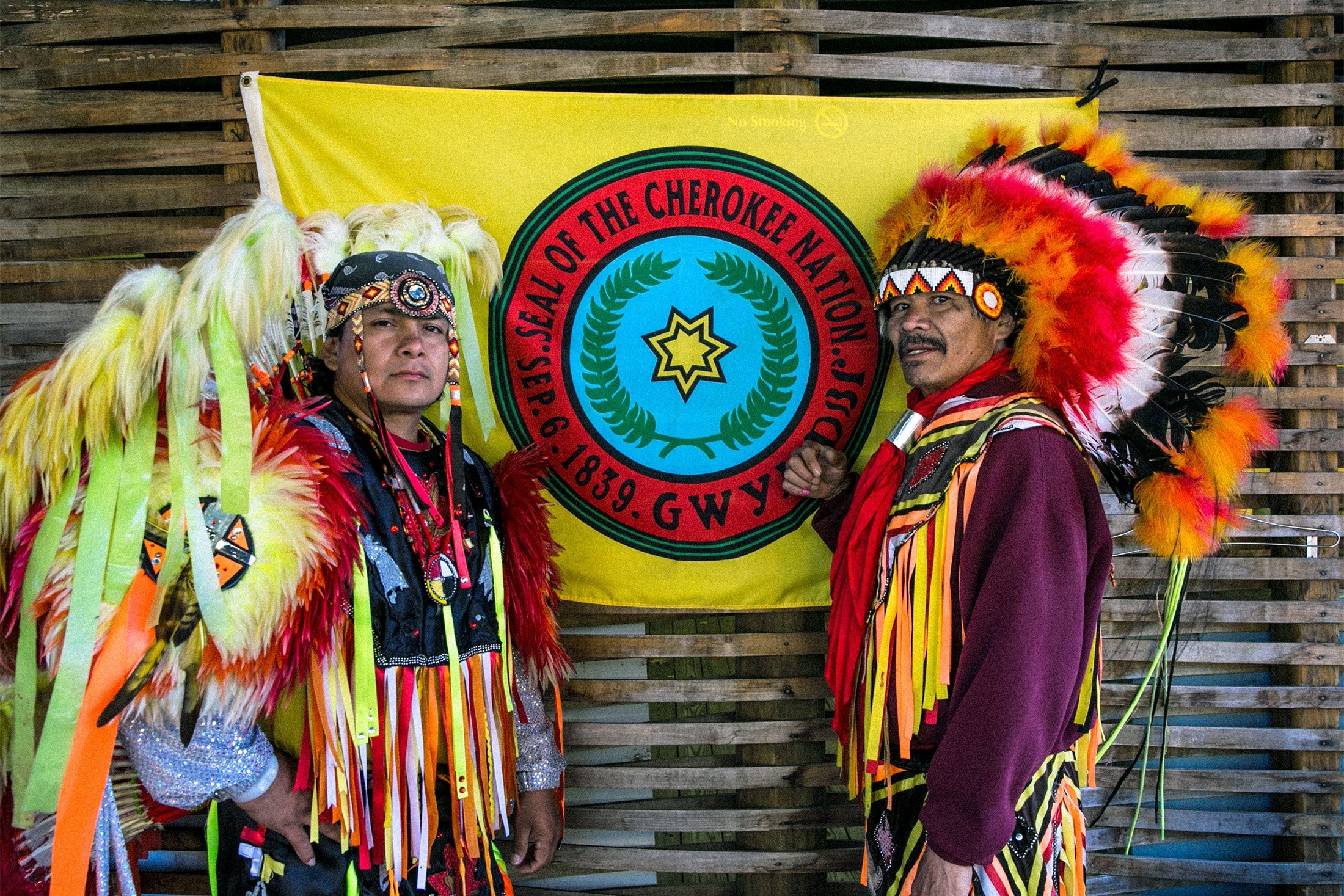Download the MP3 audio version of this story here, or sign up for The Explainer’s free daily podcast on iTunes.
Over the weekend the Cherokee Nation voted to revoke citizenship from the descendents of slaves owned by the tribe more than a century ago. A group representing the 2,800 affected members plans to fight the election results. What exactly do you get for being Cherokee?
A lot of government assistance. Like the members of other Native American tribes, Cherokees have access to free health care at tribe-run clinics and hospitals. Prescription drugs, eyeglasses, and hospitalizations are all covered under this system, which the tribe operates with funding from the federal Indian Health Services. (The quality of care isn’t always the best; in the 1970s the IHS was even accused of sterilizing women without their consent.) The tribe’s housing authority also uses government money to help Cherokees buy and remodel homes.
Being Cherokee might also earn you scholarship money. College students can score $1,000 per semester, with preferences given to those closest to graduation. About 2,000 students (or 90 percent of those who apply) receive the grants. Those who are heading into the gaming and travel industries can even get a free ride. The tribe gives full scholarships for students studying hospitality administration through a distance-learning program at the University of Nevada at Las Vegas—with the understanding that students will work for Cherokee-owned casinos and businesses when they’re done.
The size of the Cherokee casino business makes membership a boon even for job hunters who didn’t major in hospitality. The Cherokee Nation has more than 6,000 people on the payroll. * Tribal law grants Cherokee members first dibs at these jobs, followed by other Native Americans and then everyone else. (Cherokee citizens can also vote in tribal elections, and they have the right to own Cherokee Nation license plates.)
Members of some Native American tribes receive cash payouts from gaming revenue. The Santa Ynez Band of Chumash Indians, for example, has paid its members $30,000 per month from casino earnings. Other tribes send out more modest annual checks of $1,000 or less. As one of the biggest tribes in the country, the Cherokees are modestly well-off: The nation has a budget of $350 million for 270,000 citizens. But it doesn’t distribute casino earnings to members.
Want to join the Cherokee Nation? You might be one of the 750,000 Americans who claim to be a rightful member, but you’ll need to prove it. In order to gain membership, you have to use birth and death records and other official documents to show you’re a direct descendent of somebody listed on the Dawes roll, a tribal census taken from 1899 to 1906.
Got a question about today’s news? Ask the Explainer.
Explainer thanks Garrick Bailey of the University of Oregon, Mike Miller of the Cherokee Nation, and Jon Velie of Velie & Velie.
Correction, March 13, 2007: The original version asserted that the Cherokee Nation is Oklahoma’s biggest employer. That distinction belongs to the state government. (Return to the corrected sentence.)
